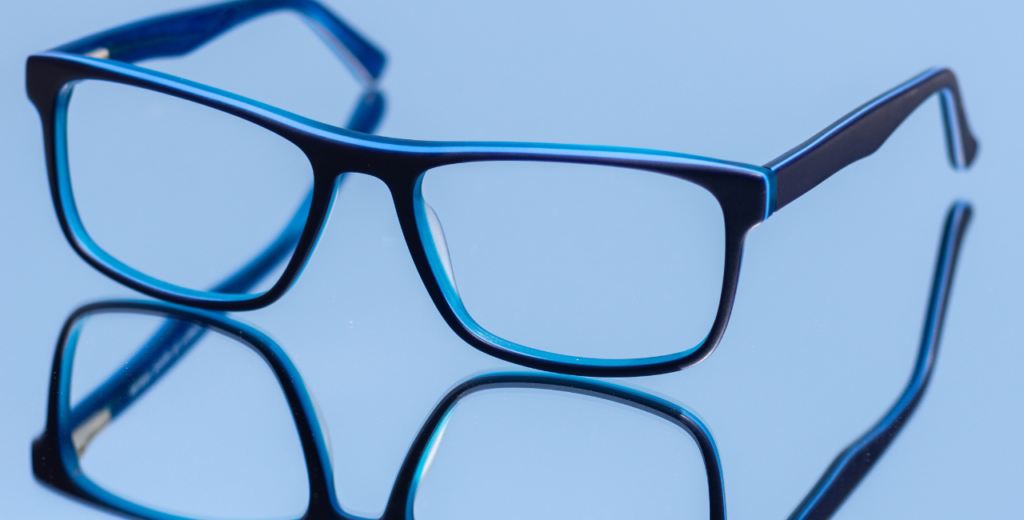Many people believe that wearing glasses weakens their eyesight over time, but is there any truth to this claim? The idea that glasses can deteriorate vision is a widespread myth that has no scientific basis. In this article, we’ll explain how prescription eyewear works, debunk common misconceptions, and explore why vision may change over time.
Do Glasses Weaken Your Eyesight?
No, wearing glasses does not weaken your eyesight. This misconception likely stems from the fact that many people require stronger prescriptions over time. However, this change in vision is due to natural factors like aging, genetics, and lifestyle—not because of wearing glasses.
Your eyes do not become dependent on glasses in a way that makes them weaker. Instead, glasses help correct refractive errors such as nearsightedness (myopia), farsightedness (hyperopia), and astigmatism. They work by refocusing light so it reaches the retina properly, providing clear vision and reducing strain on the eyes.
Why Does It Seem Like Your Vision Gets Worse with Glasses?
Some people feel that their vision is blurrier when they take off their glasses after wearing them for a while. This does not mean that their eyesight has worsened—it simply means that they have become accustomed to seeing the world clearly. When they remove their glasses, the contrast between corrected and uncorrected vision makes the blurriness more noticeable.
The Role of Prescription Glasses in Vision Correction
Many individuals notice their prescription changing over time and assume that glasses are the cause. However, vision naturally declines due to factors such as aging, increased screen time, and genetics—glasses merely help you see clearly during these changes. A comprehensive eye exam can identify any changes in your prescription and ensure that you have the correct lenses to maintain optimal vision. Additionally, environmental factors like exposure to bright lights, pollution, and extended near-work activities can contribute to vision fluctuations.
Common Reasons for Prescription Changes
- Aging: Conditions like presbyopia (difficulty focusing on close objects) commonly develop after age 40.
- Genetics: If your family members have vision problems, you may experience similar issues.
- Increased screen time: Prolonged use of digital devices can lead to eye strain and temporary blurriness.
- Underlying health conditions: Diseases like diabetes and high blood pressure can impact vision.
Can Wearing the Wrong Glasses Be Harmful?
While wearing glasses with the wrong prescription won’t permanently damage your eyesight, it can cause discomfort. Symptoms such as headaches, eye strain, dizziness, and difficulty focusing may occur if your glasses are too strong or too weak. If you experience these issues for more than two weeks after getting new glasses, consult your optometrist to ensure your prescription is accurate.
Do Glasses Improve Eyesight Permanently?
Glasses do not permanently improve or worsen eyesight—they simply correct vision while you wear them. Unlike procedures such as LASIK, which reshape the cornea to correct vision permanently, glasses provide a temporary solution that allows you to see clearly.
When Glasses Can Help Improve Vision Over Time
In some cases, particularly in children, wearing glasses can help improve vision over time. Specially designed lenses, such as myopia control contacts, have been shown to slow the progression of nearsightedness.
What Actually Affects Your Vision?
Natural Aging Process
As we age, our vision changes. Conditions like presbyopia (age-related farsightedness) become more common, requiring stronger prescriptions. Cataracts, which cause clouding of the eye lens, can also develop over time, leading to blurry vision that may require surgery.
Digital Eye Strain and Screen Time
Extended exposure to screens can cause temporary discomfort but does not lead to permanent vision loss. Symptoms of digital eye strain include dry eyes, headaches, and difficulty focusing. Following the 20-20-20 rule (taking a break every 20 minutes to look 20 feet away for 20 seconds) can help reduce strain. Additionally, blue light glasses may offer relief for those who spend long hours on screens.
Genetics and Eye Health Conditions
Your genes play a significant role in your eye health. If your parents needed glasses, you are more likely to need them as well. Some hereditary conditions, such as retinitis pigmentosa or keratoconus, can also affect vision. Regular eye exams can help detect these conditions early.
How to Maintain Good Eye Health
Regular Eye Exams
Getting an eye exam every one to two years ensures your prescription remains accurate and helps detect early signs of eye diseases such as glaucoma or macular degeneration. Children and seniors may require more frequent check-ups due to rapid vision changes.
Healthy Diet for Eye Care
Eating foods rich in vitamin A, omega-3 fatty acids, and antioxidants (like carrots, leafy greens, and fish) can promote eye health. Other beneficial foods include eggs, citrus fruits, and nuts, which help protect against age-related macular degeneration and dry eye syndrome.
Proper Screen Habits
- Adjust screen brightness to reduce glare and minimize strain.
- Maintain a safe distance from screens, ideally at arm’s length.
- Take regular breaks to reduce eye fatigue and prevent prolonged exposure to artificial light.
- Use lubricating eye drops if you experience dryness due to extended
Take Charge of Your Eye Health Today
If you notice changes in your vision, scheduling an eye exam is the best way to ensure you have the correct prescription. A qualified optometrist can assess your eye health, provide accurate prescriptions, and recommend solutions tailored to your needs.
Wearing glasses does not make your eyes worse—it helps you see the world more clearly. Don’t let myths hold you back from getting the vision correction you need. Visit Vision Gallery today for a comprehensive eye exam and expert eye care. Take the first step toward better vision now!





